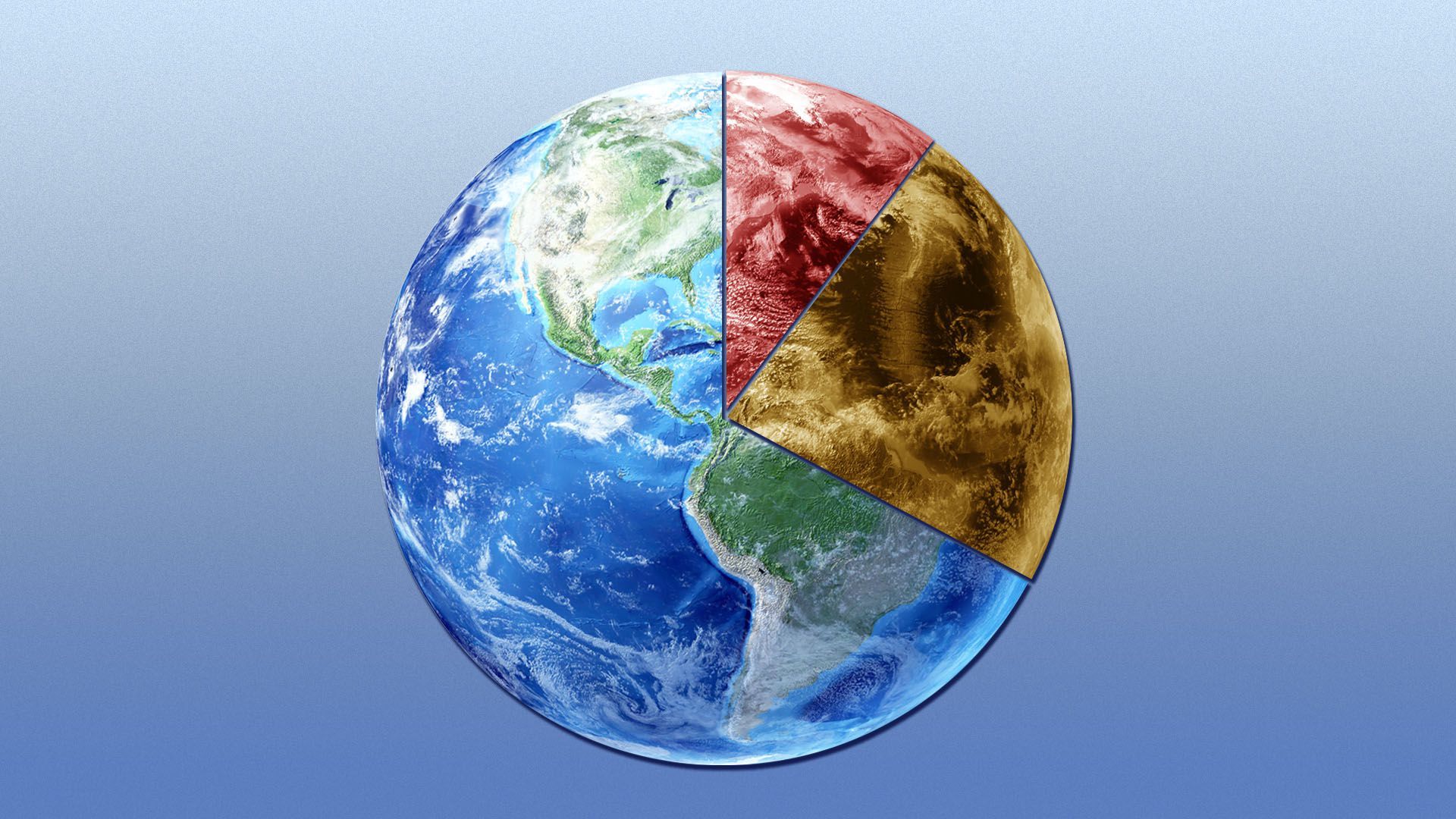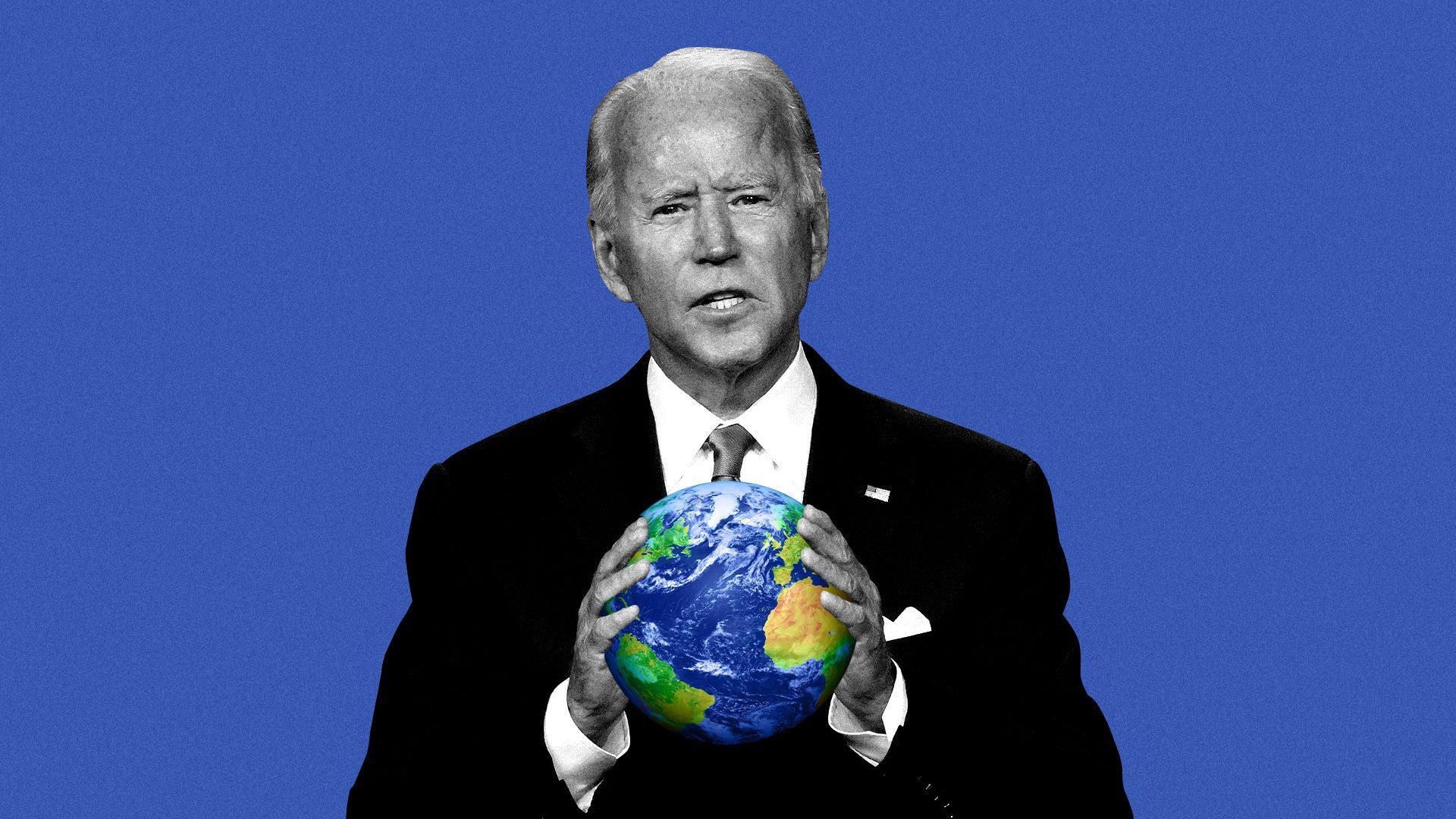| Climate change got more attention this election cycle than ever, but the (political) science is mixed on whether it helped or hurt candidates who ran on it. Driving the news: Joe Biden campaigned on the topic more than any other presidential nominee, which climate activists say is a victory. But his wins in battleground states may have come in spite of it, not because of it, political observers say. What they're saying: "The more climate change was on the agenda, the more it drove up votes in blue states, but it worked against Democrats in purple states, in battleground states," said a former Obama administration official who spoke on the condition of anonymity given tense intra-party divisions. Where it stands: A Democrat winning the presidency, Republicans probably keeping the Senate and the Democratic House losing seats "is not a governing alignment designed to address climate change," said Kyle Kondik, managing editor of Sabato's Crystal Ball at the University of Virginia Center for Politics. By the numbers: Environmentalists point to Biden's triumph over Trump as their biggest victory. The League of Conservation Voters Victory Fund put $40 million of its unprecedented $115 million electoral investment toward the White House race. - But otherwise, their return on investment is not looking good. Out of 21 races across the Senate and House LCV invested in, it looks likely they will have won six and lost 15 (five races are still not officially called).
How it works: Parsing out the climate's role depends on geography. - Democratic Sen. Ed Markey's ambitious climate policy helped propel his win in a close primary battle in September in the solidly blue state of Massachusetts.
- But voters in Florida, at the front lines of a warming world, voted for Trump even more strongly this year compared to four years ago.
- This reflects the fact that although climate change is rising as a priority for Americans, "it hasn't yet become so important — even in places incredibly vulnerable like Miami — to overcome political allegiances," says Anthony Leiserowitz, director of Yale University's Program on Climate Change Communication.
- Read my full column to learn about other electoral examples.
The other side: Joe Bonfiglio, who leads the advocacy arm of the Environmental Defense Fund, said higher than expected turnout among Trump supporters is what drove GOP wins in some races — not climate change or anti-fracking sentiment hurting Democrats, as some observers believe. The bottom line: Biden's presidential victory was propelled largely by winning the "blue wall" battlegrounds of Michigan, Pennsylvania and Wisconsin. "He did this while holding strong climate positions," Bonfiglio said. "You gotta think that's a win." | 






No comments:
Post a Comment